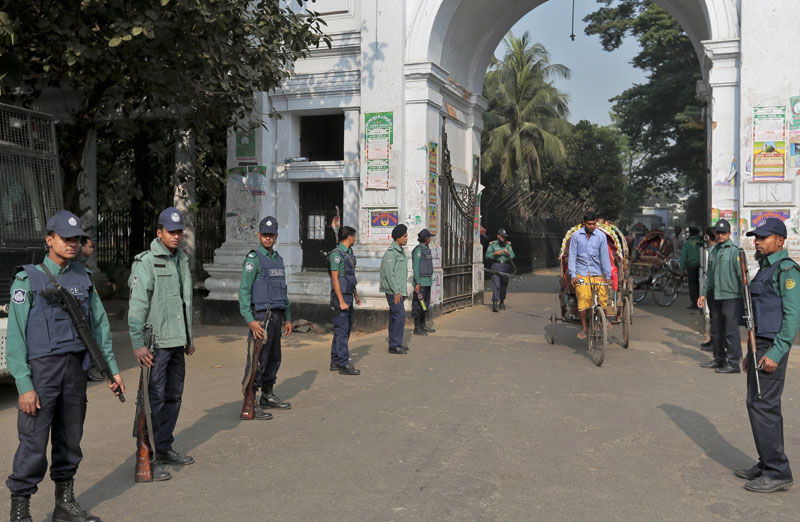Bangladesh upholds death sentence for Islamist party leader
NEW DELHI: Bangladesh's highest court upheld a death sentence Tuesday for a senior member of the country's largest Islamist party who was convicted of committing crimes against humanity during the 1971 independence war against Pakistan.
The decision is expected to aggravate the divide between moderates and extremists in Bangladesh, a Sunni-majority nation that has seen a wave of deadly assaults in the past year targeting members of the Shiite community, foreigners and secular writers.
Prime Minister Sheikh Hasina has said the war crimes trials, carried out by special tribunals, represent a long-overdue effort to obtain justice more than four decades after Bangladesh split from Pakistan.
On Tuesday, a five-judge Supreme Court panel led by Chief Justice Surendra Kumar Sinha upheld the 2014 conviction and sentence for Mir Quasem Ali on eight war crimes charges, including the abduction and murder of a young man in a torture cell.
The 63-year-old Ali had argued that the witnesses who testified against him were "fake."
Ali is on the Jamaat-e-Islami party's highest policy-making body and is considered one of its top financiers. During the nine-month independence war, he was known as one of the organizers of a militia group associated with the Pakistani military that was blamed for kidnapping and killing its opponents. Bangladesh accuses Pakistani soldiers and local collaborators of killing 3 million people during the war.
After the Supreme Court's decision, defense counselor Khandaker Mahbub Hossain said he would ask Ali's family members whether they want to seek clemency or a review of the court's verdict.
Meanwhile, Jamaat-e-Islami called for a nationwide general strike on Wednesday to protest the ruling. Strike calls by the party in recent months went largely unheeded by the public.
Hasina, a secular and reformist leader, has consolidated her position while angering Islamists by executing the war criminals, an act previously thought almost impossible because of the complicated nature of crimes committed more than 44 years ago. The demand for trying suspected war criminals is popular domestically, despite international concern over the trial process.
Since they were set up in 2010, the two special tribunals reviewing war crimes cases have issued 22 verdicts against mostly senior leaders of Jamaat-e-Islami, which had openly campaigned against independence but denied committing atrocities.






